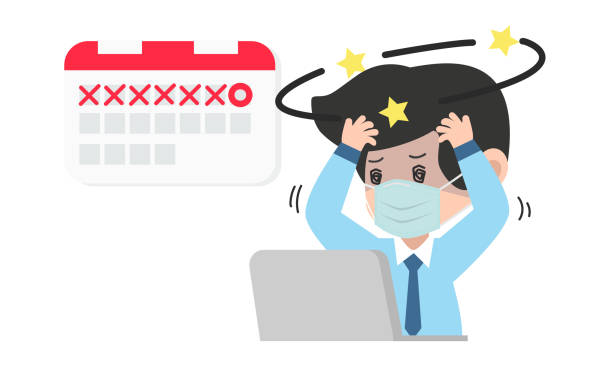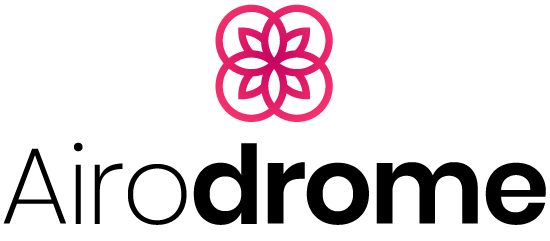An Event Planner’s Guide to Beating Burnout and Stress

An Event Planner’s Guide to Beating Burnout and Stress
Are you asked to do more work with less as an event planner? Stress levels are rising due to deadlines, depleted staff, and pressure from management. You’re not the only one.
Event Planninghas been a profession that has long been considered to be one of the most stressful in the world. In the wake of the pandemic event, professionals are more likely to experience mental health issues such as burnout. They have to deal with talent shortages and high inflation. It doesn’t need to be like this.
Even though event planning can be a stressful career, learning to reduce stress and manage, it will help you prevent your employees from quitting or becoming sick for a long time. You can also take simple steps to improve your mental health, which will make you happier and healthier at work as well as at home.
This article will look at how to avoid burnout and combat stress. We’ll also share some tips from professionals in the industry.
Stress and burnout: How to recognize the signs
Burnout is a result of stress. The bell curve is a consequence of stress levels increasing and performance decreasing in tandem. Burnout is when someone’s performance drops so far that they are physically and mentally incapable of functioning effectively. Stress and burnout go hand in hand.
Laura Capell Abra, a workplace wellbeing advocate and founder of Stress Matters, says that it’s not easy to recognize the signs of a buildup of prolonged stress.
She says, “Unfortunately there is no one set of signs because the way each person handles pressure and stress differs.” In our mental health training, we say that you should look for changes in a person’s personality.
For some, it may manifest itself as fatigue due to lack of sleep. Other people may be addicted to overeating, drinking too much, or stopping eating. “Some people become quieter, less punctual or slower to respond to requests,” she continues.
Additional factors can contribute to burnout at work, even though stress is considered the primary cause. They include:
- Unfair treatment in the workplace (e.g., Unfair treatment at work (e.g., being overlooked for promotions, not having flexible working hours, strict corporate policies).
- Disrupted home life (e.g., Divorce, grief, and parenting issues
- Continued health problems (both mental and physical pre-existing)
- Pressures on the individual (e.g., Financial, caring for an elderly relative, childcare, etc.
Capell-Abra, the founder of Stress Matters, encourages staff to be open and honest about their feelings. Team members meet on Fridays for a catch-up session to discuss personal issues and their home life that may affect their mood.
She explains, “As a manager or team leader, you should be more aware of your colleagues. You need to listen to them and look for any signs of behavioral change.”
After detecting possible burnout signs, both employers and employees can take steps to reduce risk and improve workplace wellbeing.
1. Define and establish clear boundaries
You, as a leader in the events industry, must ensure team briefs and client agreements are well-communicated and clear. This will help you make better decisions about employee health.
You should, for example, make it clear that you will not allow your team to work onsite longer than what is considered healthy. Instead, clients are required to pay the cost of shared roles. Make sure you are clear about the policies in place to protect your staff from burnout.
Don’t let industry expectations of always being available and going ‘above-and-beyond’ prevail.
Set boundaries for yourself so you can take a break from your work to reset your perspective.
2. Focus on the strengths of individuals and delegate (if you can)
The role of the event planner has changed over the past few years. To execute a hybrid event, you’ve needed to master new technologies, as well as better understand audience insights.
Stress levels increase as roles and responsibilities grow, especially among junior staff, who may feel less empowered to ask for help or to speak up.
Senior leaders must, therefore, be able to identify the strengths of their teams and know when someone is in need of help.
This help can come from colleagues and suppliers. Individuals will feel more empowered if they are able to rely on others’ expertise and work within their strengths. It will reduce the stress and anxiety that come with feeling out of your depth.
If you are a junior planner, do not be afraid to express your strengths and weaknesses in your job.
A manager or boss who understands the situation will provide additional training, mentoring, or restructuring of team responsibilities.
3. Relax and unwind
Resting does not mean that you stop doing things, but you must use your brain in a different way than when it is in working mode. Have hobbies, pursue outside interests, and allow yourself to reset.
Capell-Abra continues, “I grew up in a culture that emphasized ‘work hard and play hard.’ But no one told me to’rest harder’.” You have to learn to rest well, and this can mean many different things for different people. Others sleep by going on a run or doing a workout at the gym. Some people relax by meditating, reading, or sitting still.
4. Automate your processes and systems
You can rely on technology when you want to accomplish more with less.
Asana, Trello, and other project management tools can help you organize tasks, track progress, and assign help as needed. You also have access to your team’s checklists.
The venue sourcing technology can automate tedious tasks like sending out RFPs and shortlisting, as well as generating reports.
Content creation tools make it easy to create professional videos, webinars, presentations, and designs using templates and dashboards.
Often, the time when guests are checking in and receiving their badges is one of the most stressful aspects of an event. You can reduce the stress of manually finding and checking names and be more environmentally friendly by printing badges only when attendees arrive.
A single integrated technology stack can store and share data on how attendees interact with your content more efficiently. You can save yourself hours of spreadsheet work by assessing delegate satisfaction as the event unfolds.
5. Stay organised
Do not always put the easiest deadlines on top. Stress levels will increase as you become more anxious about leaving difficult tasks to the last.
Plan a difficult task in between two easier ones to give yourself some time to recover after the more challenging part. Use a planning checklist to visualize how much time you need for each task so that your deadlines are realistic and you can ask for help if needed.
Sarah Payne, an event project manager who has over 20 years of experience, believes that setting priorities is key to staying organized.
She advises: “Prioritize tasks so you can check them off as you go throughout the day.” It’s a great feeling to see all your tasks completed at the end of the day. This is good for your mind and relieves any stress.
Keeping organized allows you to plan for time off work, lunch breaks, and self-care periods.
Payne says that prioritizing your own time is equally important.
6. Ensure your team gets the support it needs
Stress is contagious, so if you are stressed out, chances are others in your team will also be.
There are many ways to improve the morale of your team and reduce stress when working in an environment with high pressure.
You can improve the morale of your team by:
- Celebrate even small victories to reward hard work
- Allowing team members to use their strengths and not micromanage is the best way to avoid micromanagement.
- Prioritizing teamwork to promote togetherness
- Introduce workplace wellness initiatives, such as quiet areas, yoga classes at lunchtime, or communal play spaces.
- Regular catch-ups can help create an open and honest culture at work
- Offering incentives at work such as gym memberships, sabbaticals, and pensions.
There is help out there.
When battling burnout, it’s important to remember that you are not alone. There is a wealth of information and resources available to help you implement workplace wellbeing strategies.
It is not surprising that there will be stress when planning and staging events. This sector is deadline-driven. However, we must remove the cultural belief that stress is an inevitable part of event management.

